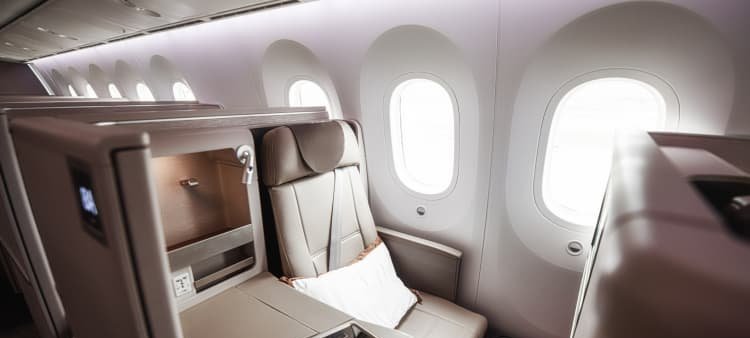Management changes and strategic reset
Chief Executive Officer Robert Isom has tasked more than 130,000 employees with reversing the downward trend. Heather Garboden, a 20-year veteran of American and US Airways, was named chief customer officer to lead end-to-end product improvements. Last week the airline also appointed Nat Pieper, formerly of Alaska Airlines and Delta, as chief commercial officer, filling a position vacated in 2024 after a misstep in corporate-travel sales strategy.
The carrier forecasts capital expenditures of $3.8 billion in 2025 and roughly $4.5 billion in 2026, excluding aircraft purchases. Total debt stands near $37 billion, and management intends to reduce that figure by at least $2 billion before 2028.
Cabin and lounge enhancements
American has introduced Bollinger Champagne in its flagship lounges and premium cabins and is renovating business-class suites with sliding doors, larger entertainment screens and a new color palette of dark browns, navy and tan. These suites entered service in 2025 on select Boeing 787 Dreamliners and will be retrofitted to the Boeing 777-300 fleet. The carrier announced on Thursday that its Boeing 777-200 aircraft will receive a similar refurbishment, extending the jets’ service life and reducing near-term fleet-replacement outlays.
The first Airbus A321XLR—a long-range single-aisle model destined for domestic transcontinental and eventual transatlantic routes—arrived at Dallas–Fort Worth International Airport last week. All three aircraft types will dispense with first class in favor of an expanded business-class cabin. On trans-Atlantic flights, economy fares can start around $600 while business-class seats sell for more than $6,000.
Technology and retailing upgrades
After previously removing seat-back screens to save weight and costs, management is reassessing in-flight entertainment as technology evolves. American is also updating its website and mobile app, adding a cash-or-miles payment toggle and experimenting with artificial-intelligence search functions that allow travelers to look for experiences—such as seasonal wine-tasting destinations—rather than specific city pairs.
Next year, the airline expects to introduce complimentary Wi-Fi across most of its domestic fleet, a benefit Delta and JetBlue already provide and United began offering on select aircraft through SpaceX’s Starlink service. American recently signed a partnership with Italian coffee producer Lavazza and conducted taste tests using on-board water to replicate in-flight conditions.
Credit-card expansion and loyalty
A new mid-tier co-branded credit card with an annual fee of $350 will join the existing lineup following the renewal of the airline’s agreement with Citi. Frequent-flyer revenue remains a critical cash source industry-wide; American pioneered loyalty programs with the 1981 launch of AAdvantage.

Imagem: Internet
Operational reliability efforts
As part of a reliability initiative unveiled earlier this year, boarding times have been extended by five minutes to reduce last-minute gate-checked baggage. Airline data show a 25% decrease in gate-checked items since the change took effect on May 1. American’s management believes fewer boarding bottlenecks will bolster on-time performance, which lagged competitors for much of 2025.
Competitive landscape
United and Delta attribute recent financial strength to concentration in coastal hubs with high-spending travelers, alongside growth in markets such as Denver, Houston and Chicago. American holds dominant positions in Dallas and Charlotte but lost ground in the Northeast after a federal judge blocked its regional alliance with JetBlue in 2023. United subsequently secured a mileage partnership with JetBlue without coordinating schedules.
United’s leadership claims a multiyear advantage from investing more than $1 billion annually in customer experience. According to U.S. Bureau of Transportation Statistics, on-time data gaps between carriers persist, highlighting the importance of extended investment timelines.
Early signs of improvement
American exceeded Wall Street expectations with its fourth-quarter profit forecast, triggering a 16% weekly share gain—the steepest in almost twelve months. Management states that revenue share lost during the prior sales-distribution misstep will be fully recovered by year-end.
Some frequent travelers remain loyal due to schedule breadth from home airports. Nonetheless, the airline faces union pressure to raise staffing levels in enlarged business-class cabins to match service expectations.
Whether capital allocations now underway will close the profitability and perception gaps with Delta and United remains uncertain, but American executives emphasize that the turnaround strategy is designed for gradual, sustained progress rather than quick fixes.
Crédito da imagem: Kevin Carter | Getty Images News



